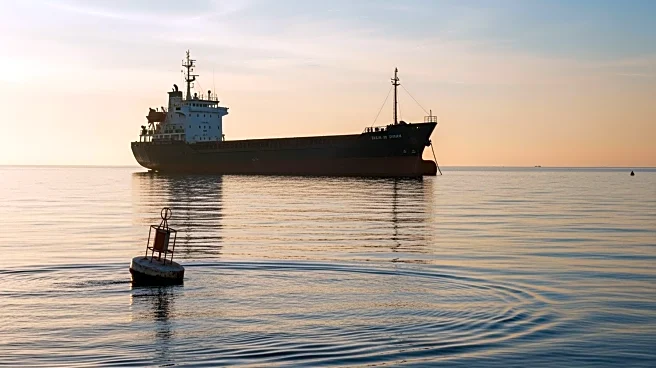What's Happening?
The livestock carrier Spiridon II, which was stranded off the Turkish coast for 24 days, has resumed its journey. The vessel was unable to unload its cargo due to discrepancies in ear tag documentation, leading to the deaths of 58 cows and miscarriages
among 140 pregnant cows. Animal advocacy groups have raised concerns about the conditions aboard the ship, including inadequate fodder, bedding, and potable water, resulting in heat stress and dehydration for the animals. The carrier, which left Uruguay on September 19 with 2,901 animals, is now headed back to Uruguay. Rights groups have called for intervention from the European Union, although Turkey's non-membership in the EU limits jurisdictional powers.
Why It's Important?
The situation highlights the risks associated with long-distance sea transport of livestock, including inadequate oversight and enforcement, which can lead to animal suffering and preventable deaths. The incident has drawn attention to the need for better regulatory frameworks to ensure the welfare of animals during transport. The advocacy groups' call for EU intervention underscores the challenges in addressing such issues across international borders, particularly when jurisdictional limitations exist.
What's Next?
Animal advocacy groups are likely to continue pushing for regulatory changes to prevent similar incidents in the future. The EU may consider reviewing its policies on livestock transport to enhance animal welfare standards. The incident may also prompt discussions on the ethical implications of long-distance livestock transport and the need for more sustainable practices.
Beyond the Headlines
The case of Spiridon II raises ethical questions about the treatment of animals in the livestock industry and the responsibilities of countries involved in international transport. It may lead to increased scrutiny of the practices of shipping companies and the conditions aboard livestock carriers, potentially influencing future policy decisions.















